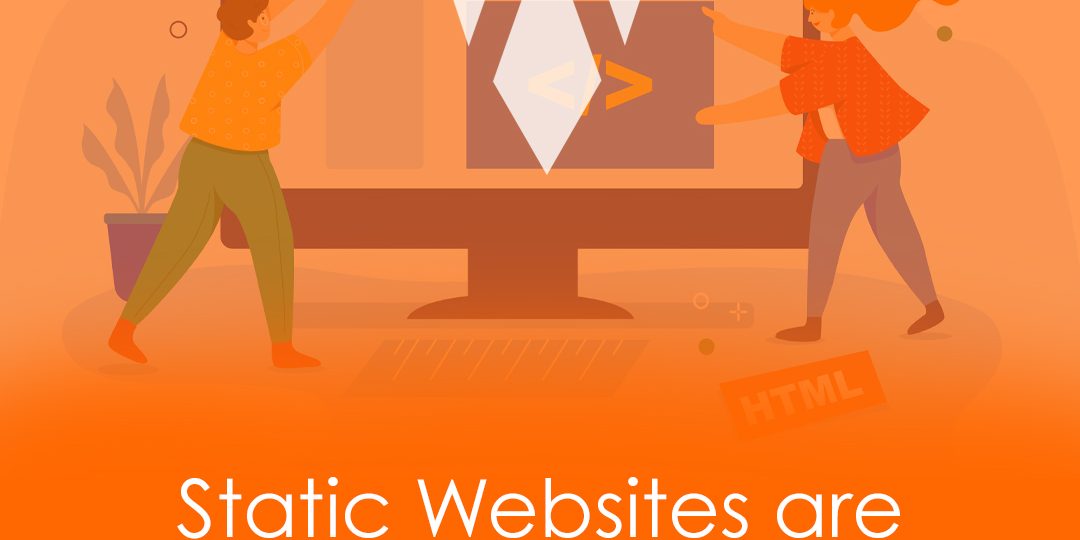“Static Websites are Bad for Business”
Website lays the foundation for any online business, and it goes without saying that it needs to be solid to help the business grow in every way possible. Therefore, the type of website you choose plays a crucial role, and the two broad categories you get to choose from are: static websites and dynamic websites.
Of the two, static websites are widely believed to be bad for business. If you have come across the saying as well, but didn’t really know why, read ahead.
What is a Static Website?
Technically, static websites are those that are usually developed in languages like HTML, CSS, and JavaScript. The first is responsible for the actual content on your website; the second takes care of the styling aspects, like fonts, colors, etc.; and the last one takes care of other more complex aspects, like the performance of a particular menu button, etc.
While static websites do have benefits of their own, like being cost-effective, time-saving, less expensive, easy to setup, and easy to integrate, there are also equally solid reasons why they might be bad for a business:
Difficult to Update
One straightforward downfall to static websites is that it is difficult to update content whenever you need. Not just that, you need an expert web developer to do the job for you, because it cannot be handled by a learner. Even if there is a single or slight change you need done on your website, every single HTML file will have to be worked on individually, which can be a major headache.
Not Suitable for Large Websites
If you happen to have a large website with hundreds of pages, if not thousands, publishing content regularly, and with a large team working on the same, then a static website wouldn’t be the right choice for you. From editing and publishing of content to delays in real-time updates, and a lot more in between, there is a wide array of issues you are likely to face.
Limited Capabilities
While a static website comes with certain standard capabilities, like the ability to add text, images, hyperlinks, and the like to your content, you do not get to use more advanced and complex functionalities or capabilities like you could with a dynamic website.
Requires Expertise
With a static website, you need development knowledge and expertise even to take your site past a certain point. This is because the availability of resources for the same will be limited, which includes references, and it could also be difficult to find pre-built templates and other similar items that will be helpful for the process. Therefore, if you are in the beginner stage of becoming a developer, static website is not for you.
Not Viable for the Long Haul
Regardless of the business you run, when you have a website, you will have to make constant updates to it, from adding new content to making updates and upgrades to meet the changing trends and buyer expectations. This wouldn’t be viable with a static website, because with every change you make, every page file will also have to be updated, which can be an extremely time-consuming process.
But, do keep in mind that static websites may not be bad for all businesses; the choice ultimately depends on the size of your business, your business requirements, your customer base, and your development team’s expertise.








